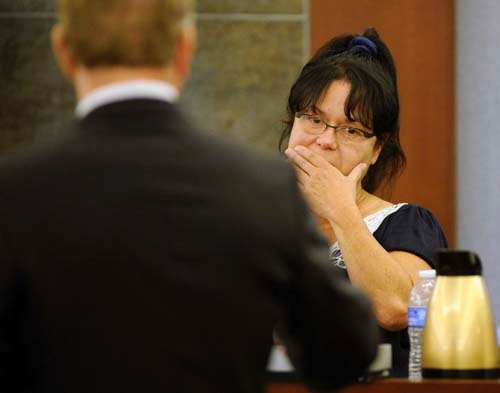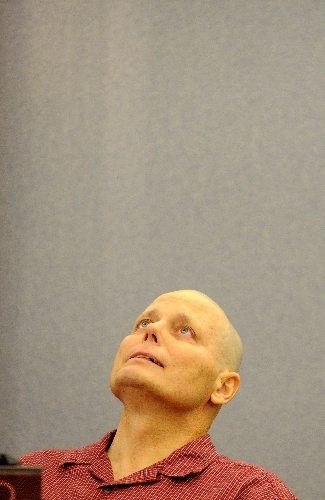Couple testifies in second trial stemming from hepatitis C outbreak



James and Anne Arnold once enjoyed an active retirement, spending their days hiking, biking, bowling and dancing.
But their life of fun and vigor ended soon after July 13, 2007, the day she got a colonoscopy at the Endoscopy Center of Southern Nevada.
About two months later, Anne Arnold lost her energy and spent much of her day in bed "like she had the flu all the time," her husband testified Monday in District Court.
The two were left wondering about her sudden illness until early 2008, when she got a letter from local health officials urging her to get tested for hepatitis C and other blood-borne diseases she might have been exposed to at the Endoscopy Center of Southern Nevada, the epicenter of Las Vegas’ hepatitis C outbreak.
The test results confirmed her infection, one of 106 cases the Southern Nevada Health District deemed "possibly linked" to clinics run by Dr. Dipak Desai. Health officials definitively linked nine hepatitis cases to two of the clinics.
The couple testified during the second civil trial stemming from the outbreak.
The Arnolds and three others sued Teva Parenteral Medicines Inc. and Baxter Healthcare Services, saying the companies knew doctors and nurses around the world double-dipped with 50-milliliter vials of the anesthetic propofol but did nothing to remove the money-saving temptation by refusing to sell the larger vials to outpatient clinics such as the endoscopy clinics.
Health officials blamed the hepatitis outbreak on nurse anesthetists reusing propofol contaminated by syringes that were reused on infected patients.
The case is nearly a carbon copy of last year’s trial that ended with a record-setting $500 million verdict against the companies in favor of Henry Chanin, who contracted hepatitis C at one of Desai’s two endoscopy clinics.
Authorities have charged Desai and two nurse anesthetists with multiple felonies stemming from the outbreak.
Teva and Baxter have appealed the verdict. They also went to the Nevada Supreme Court and won a ruling to allow new testimony about proper sterilization procedures for endoscopes.
On the stand, Anne Arnold, 59, told the jury how the fatigue from hepatitis C forced her to give up her real estate career and leaves her just enough energy each day to change the sheets on a bed or vacuum a single room.
The active life she once enjoyed with her husband is long gone, she said.
"I miss my life. I miss the fun we used to have. I’m tired of being sick," she said.
Though the chances of transmitting her infection are remote, she said she is terrified about giving it to her husband, whose immune system has been weakened by chemotherapy. He has non-Hodgkins lymphoma.
"If there’s any chance, just a small chance, it would kill him. I can’t live with that," she said.
They moved into separate bedrooms and ended all intimate contact.
"It’s like I lost my wife and I got a roommate," said a tearful James Arnold, 53, a retired Navy man.
She also worried about passing it to friends and family and has essentially isolated herself in her home.
"I’m ashamed," she said. "I feel like I have this disease that I can give to anybody if I’m not careful, and I can’t get that out of my head."
The plaintiffs’ case is expected to wrap up in the next couple of days after more than four weeks of testimony. The drug companies will then present their defense. Their lawyers have said the companies had no control over what happened to the vials after they were sold to the clinics.
Contact reporter Brian Haynes at bhaynes@reviewjournal.com or 702-383-0281.












